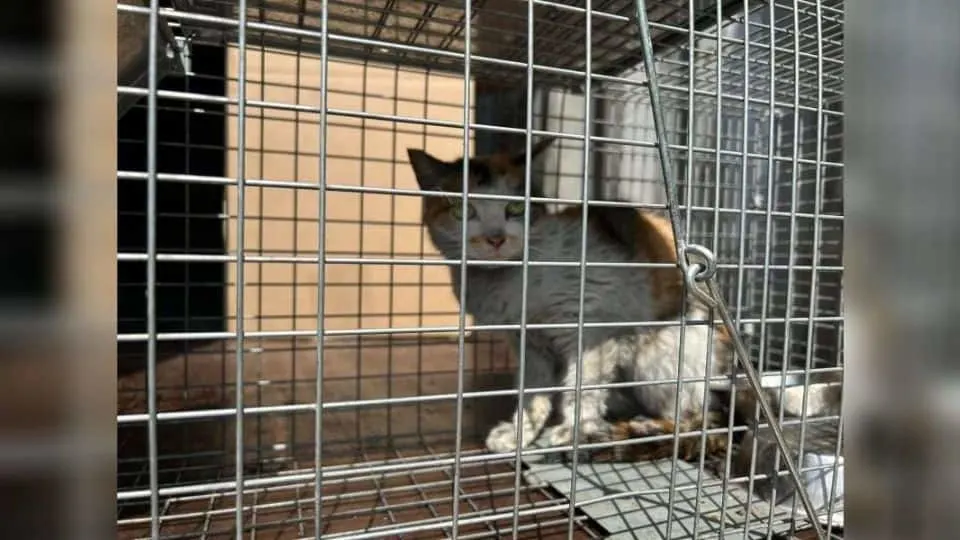
In Minnesota, a group of employees was carrying out what seemed like another ordinary day of work.
They were unloading a massive shipping container that had traveled thousands of miles across the ocean. The routine was broken in an instant when one of the wooden crates shifted unexpectedly. Everyone froze.
The movement was too deliberate to be caused by loose items.
Afraid of what might be inside, the workers quickly retreated and sealed the container shut, unsure if they were dealing with an animal or something else entirely.
A Startling Surprise Hidden in a Shipping Container
When help arrived and the doors were cautiously opened again, the truth left everyone speechless.
From inside the dark, stifling container, a frightened cat appeared. Somehow, against all odds, she had survived the long voyage all the way from China.
The distance alone was staggering—nearly 7,000 miles—but even more shocking was the fact that she had done it without reliable food, fresh water, or light for weeks.
She had clung to life in silence, waiting for someone to finally notice her.
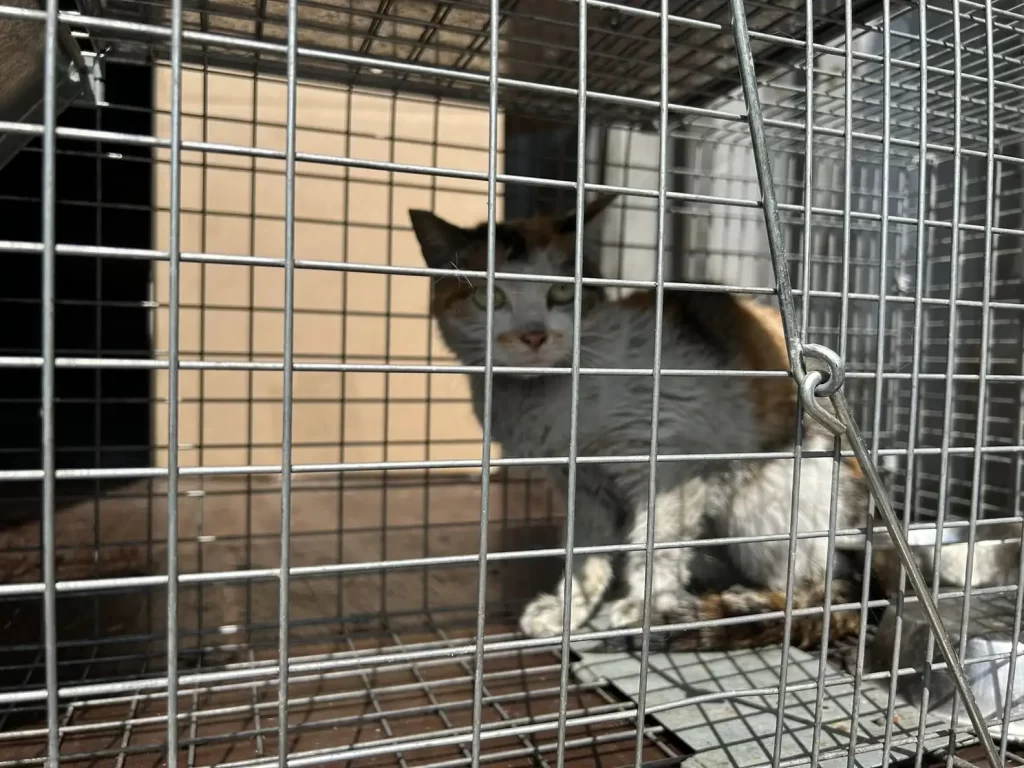
The responsibility of saving the little traveler fell to Dawn Danneker, an experienced transporter with Companion Animal Care and Control.
When she arrived, the sight was heartbreaking. The cat had wedged herself tightly under a heavy wooden pallet, refusing to come out.
Danneker tried every tool she had on hand, but nothing was slim or long enough to reach her.
Moving the pallet wasn’t possible—it was so large and solid that even a forklift couldn’t lift it.
A Struggle Against Heat and Fear
To make matters worse, the temperature inside the container was rising quickly. With summer heat pressing down outside, the metal walls trapped unbearable warmth inside.
Soon it was close to 100 degrees, and everyone feared the cat would not survive much longer.
Danneker created a makeshift barrier to allow fresh air to flow in, desperately trying to cool the space down.
She then set humane traps with food and water, hoping the exhausted cat would wander into one once she was too tired to resist.
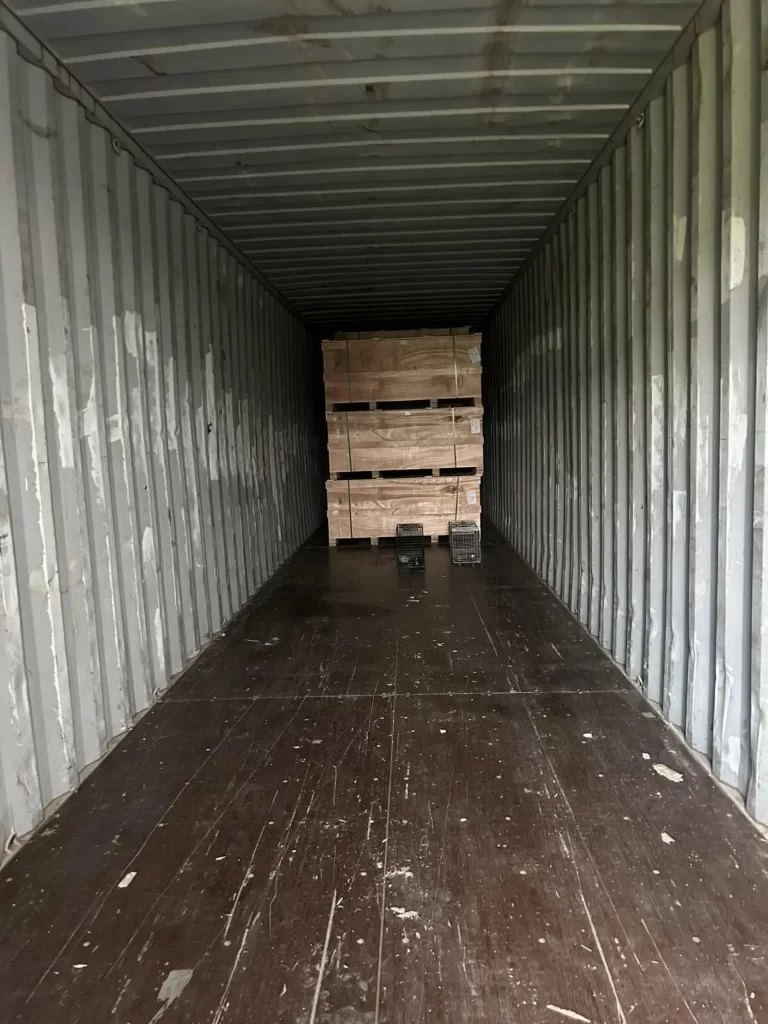
The long wait was nerve-racking.
Hours passed with no sign of success. Then, just after dawn, the call came—at 5:30 a.m., the cat had finally been secured.
Inside the trap she looked impossibly small, her frail body curled up tightly as if she was trying to disappear.
When she stood, the extent of her struggle was clear. Her ribs showed beneath her fur, her body weakened by three weeks of survival on only scraps.
It was likely she had managed to catch a few rodents and sip tiny drops of condensation along the way. Without that luck, she never would have made it.
A Fragile Survivor Begins to Heal
The rescued cat was immediately transported to Northwoods Humane Society. There, the veterinary team carefully examined her and began the long process of helping her recover.
She was underweight, frightened, and too exhausted to trust anyone.
Even gentle touches made her shrink back in fear. Yet there was no mistaking the fact that she was alive, and that alone felt miraculous.
To mark her extraordinary journey, the staff gave her a fitting new name—Stowaway.
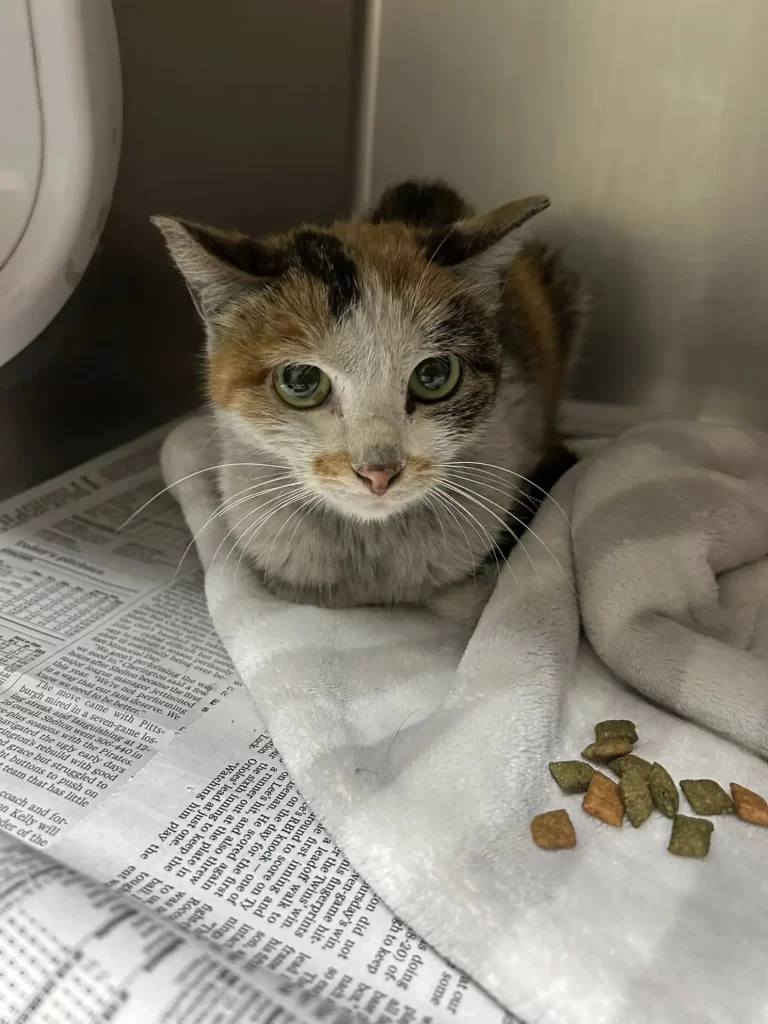
For now, Stowaway is staying with a foster home through Pet Haven of Minnesota. Her new caregivers are showering her with love, nutritious food, and clean water—things she went so long without.
Because of her extreme shyness, she has been placed in Pet Haven’s Wallflower program, designed specifically for animals who need extra time to come out of their shells.
Slowly, she is beginning to adjust, showing small signs that she may one day trust people again.
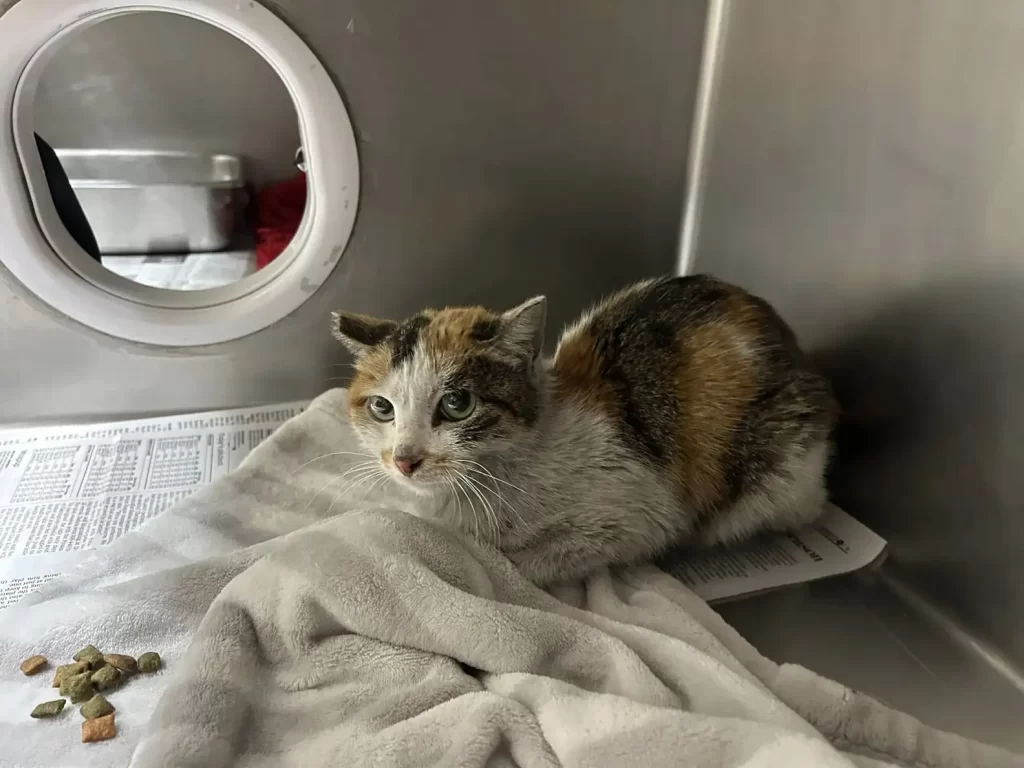
Her story is far from over, but the worst is finally behind her. What began as a terrifying ordeal across an ocean has now become a second chance at life.
With patience and compassion, her foster family hopes to watch her bloom into the happy, confident cat she was always meant to be.
Stowaway’s resilience is a reminder that even in the harshest of circumstances, the will to live can carry a fragile soul through impossible odds.
And thanks to the kindness of strangers, she will never have to face that kind of loneliness again.
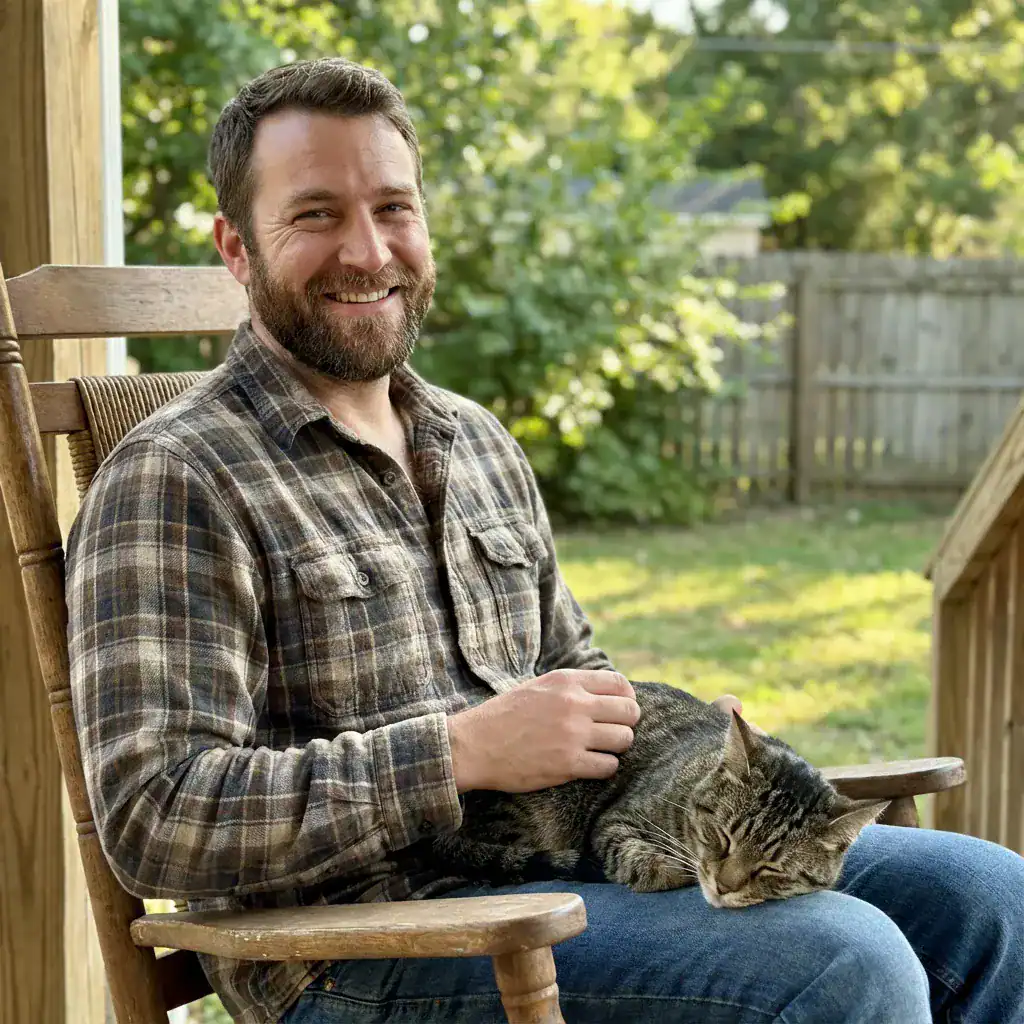
I’m Chris, a lifelong cat lover and rescue advocate based in Austin, Texas. What started with one scruffy shelter cat ten years ago turned into a mission — sharing the stories of cats who got their second chance. I believe every rescue cat has a tale worth telling, and I’m here to tell them. When I’m not writing, I’m probably being ignored by my own three rescues
